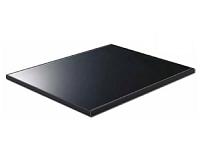 |
Washington (UPI) Mar 29, 2011 Germany passed the United States as the world's second-biggest clean energy market as Britain dropped from third to 13th place and China extended its lead, a new study suggests. Global investment in clean energy such as solar, wind and biomass jumped 30 percent last year to $243 billion, research released Tuesday by the Pew Charitable Trusts indicated. More than 90 percent of investments were made in the world's 20 most industrialized nations, Pew said. "The clean energy sector is emerging as one of the most dynamic and competitive in the world, witnessing 630 percent growth in finance and investments since 2004," Phyllis Cuttino, director of Pew's clean energy program, said in a statement. China once again topped the globe with investments of $54 billion in 2010, followed by Germany with $41.2 billion. The Germans doubled their 2009 investments and passed the United States, where some $34 billion of clean energy investments were recorded last year. Pew said investors were discouraged by the market insecurity in the United States. "Absent adoption of predictable, ambitious, long- term clean energy policies, the United States will have substantial difficulty keeping pace with China and other rapidly growing clean energy economies," the report said. Britain, which had impressed in previous years thanks to large offshore wind power funding programs, fell from third to 13th place after its investments dropped to $3.3 billion, down from $11 billion in 2009. Pew said investors" appear to believe that there is a high level of uncertainty about the direction of clean energy policymaking in the country" following the change of government there. This means that Britain is behind emerging economies including Brazil (sixth place) and India (10th place), where political support is driving investments. "Countries like China, Germany and India were attractive to financiers because they have national policies that support renewable energy standards, carbon reduction targets and/or incentives for investment and production and that create long-term certainty for investors," Cuttino said. Some 40 gigawatts of wind turbines and 17 GW of solar panels helped increase global renewable energy power generating capacity to 388 GW in 2010, Pew said. Investments in small-scale renewable projects, for example rooftop-mounted solar panels, doubled to $56.4 billion in 2010, with more than half of that money spent in Germany. "Significant investment in small-scale and residential projects also occurred in Japan, the European Union (especially France and Italy) and the United States," said the report, which relies on data compiled by Bloomberg New Energy Finance.
Share This Article With Planet Earth
Related Links All About Solar Energy at SolarDaily.com
 Solar Frontier Sets New Efficiency Record In Thin-Film CIS Technology
Solar Frontier Sets New Efficiency Record In Thin-Film CIS TechnologyTokyo, Japan (SPX) Mar 30, 2011 Solar Frontier announced today that it has achieved 17.2% aperture area efficiency on a 30x30cm CIS-based photovoltaic submodule, according to in-house measurements. This new world record for thin-film CIS technology was accomplished at Solar Frontier's dedicated research laboratory in Atsugi, Japan, a cornerstone of the company's integrated research and production framework, in cooperatio ... read more |
|
| The content herein, unless otherwise known to be public domain, are Copyright 1995-2010 - SpaceDaily. AFP and UPI Wire Stories are copyright Agence France-Presse and United Press International. ESA Portal Reports are copyright European Space Agency. All NASA sourced material is public domain. Additional copyrights may apply in whole or part to other bona fide parties. Advertising does not imply endorsement,agreement or approval of any opinions, statements or information provided by SpaceDaily on any Web page published or hosted by SpaceDaily. Privacy Statement |